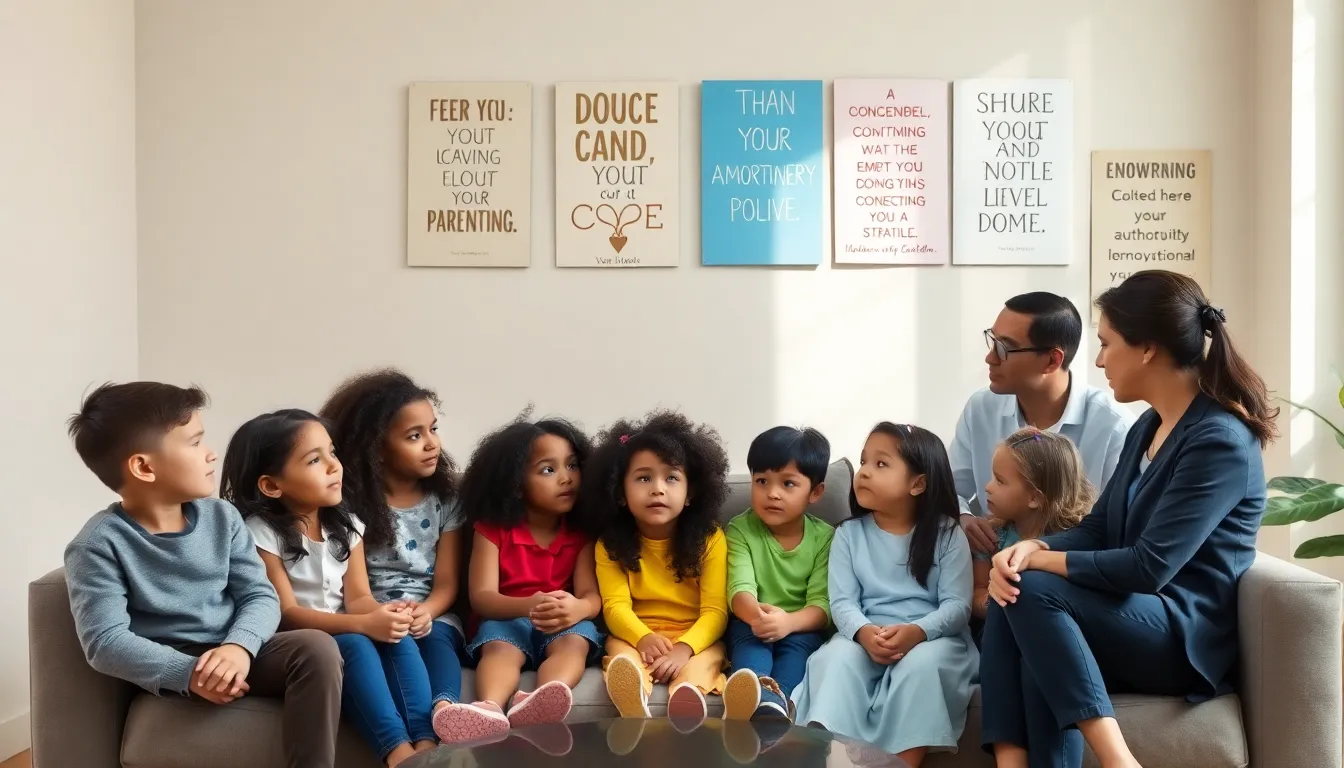Table of Contents
ToggleImagine a parenting style that combines strict rules with loving guidance. Sounds like the best of both worlds, right? But wait, before you jump on the authoritative parenting bandwagon, it’s key to consider some of the drawbacks. Sure, guidance is important, but what happens when that guidance turns into pressure? In this text, we’ll explore the cons of authoritative parenting. Buckle up: you might find it’s not all sunshine and rainbows.
Potential Emotional Strain On Children

Many children raised in authoritative households may experience emotional strain. While structure is essential, being held to high standards can lead to anxiety. Kids might feel they’re constantly under a microscope, striving for perfection. Rather than learning to embrace their unique identities, they may become preoccupied with achieving approval. This pressure can manifest in various ways, from overthinking to full-blown meltdowns. In the long run, such emotional distress can impact their mental well-being.
Pressure To Meet High Expectations
High expectations are a hallmark of authoritative parenting, but they come with a hefty price tag. Children often find themselves feeling like they’re on a never-ending treadmill, running to meet goals that seem just out of reach. The insistence on academic and behavioral excellence can push kids into a relentless pursuit for grades and accolades. While some thrive under pressure, others may crumble, leading to lowered self-esteem and a fear of failure. After all, not every child can be a straight-A student or an all-star athlete, right?
Struggles With Independence
Interestingly, one of the biggest drawbacks of authoritative parenting is the potential struggle with independence. Parents often guide decisions heavily, leaving little room for children to explore their own choices. This can lead to dependency, where kids hesitate to make decisions on their own, always seeking parental input first. Imagine being in a situation where a teenager can’t decide what to eat without texting Mom to consult the menu. By not allowing children the space to make mistakes, parents unintentionally hinder their ability to navigate the real world with confidence.
Possible Resentment And Rebellion
Too much guidance can lead to a paradoxical result: children may develop resentment toward their parents. High levels of control can transform into rebellion. Kids might start to push back against the very rules meant to protect and guide them. Instead of fostering respect, constant oversight may trigger feelings of suffocation, leading teenagers to rebel in ways that surprise everyone. This rebellion can manifest as petty rules violations or major life choices that are starkly different from their upbringing.
Impacts On Parent-Child Relationship
The relationship between parent and child can take a hit under an authoritative parenting style. As children feel overwhelmed by expectations, they might withdraw emotionally, leading to a disconnect. At the same time, parents may struggle to reach out, fearing an explosion of teenage angst. Communication can break down, and the warm, loving connection they once had can feel strained. Eventually, such fractures can evolve into lasting impacts on their relationship, reshaping family dynamics for years to come.
Cultural Considerations In Authoritative Parenting
Cultural backgrounds can play a significant role in shaping how authoritative parenting is perceived and practiced. In cultures that prioritize collectivism over individuality, the implications of high expectations can vary widely. Some families might embrace the authoritative style, viewing it as a necessary framework for responsibility. Others, but, may see it as restricting personal growth. The cultural context can either minimize the emotional strain or amplify feelings of inadequacy and rebellion.
Balancing Guidance With Autonomy
Striking a balance between guidance and autonomy is crucial for effective parenting. Families accustomed to a directive approach might find it beneficial to introduce elements of independence slowly. Allowing children to make choices within a structured framework can empower them and foster confidence. For instance, permitting a teenager to plan their schedule or partake in extracurricular activities could be a great start. As parents learn to step back, they not only offer support but encourage individuality.







